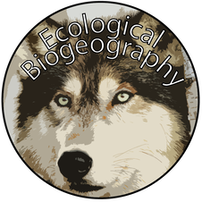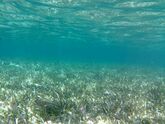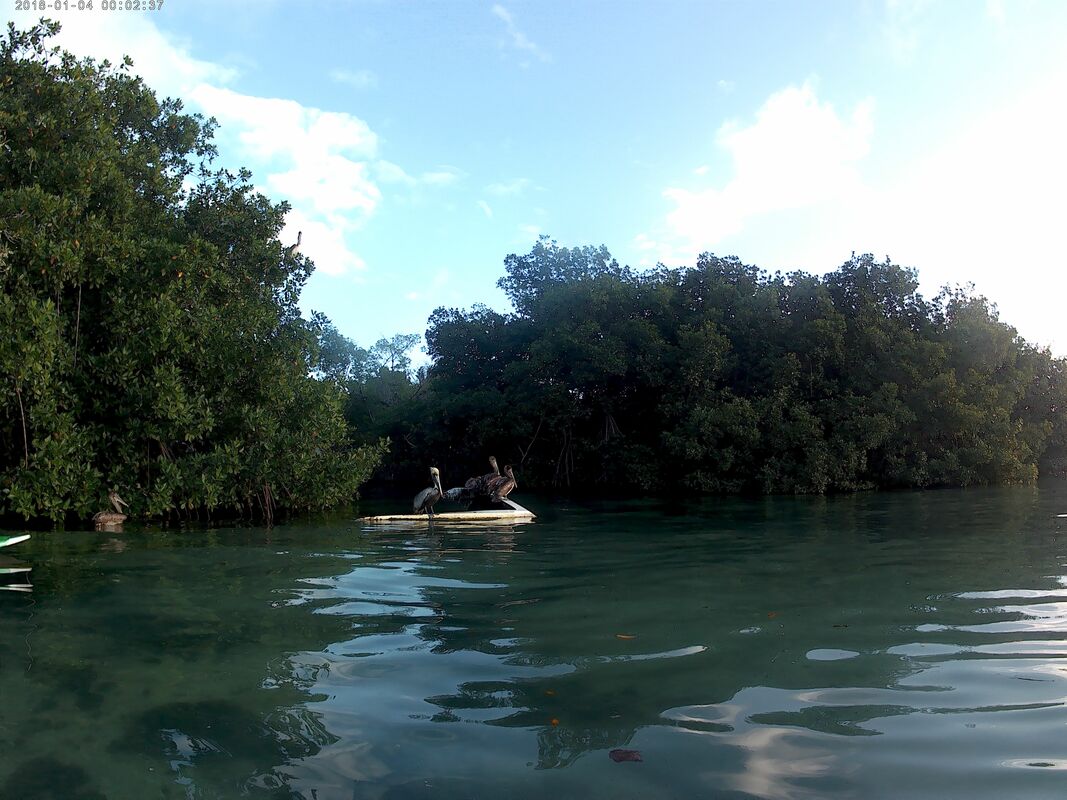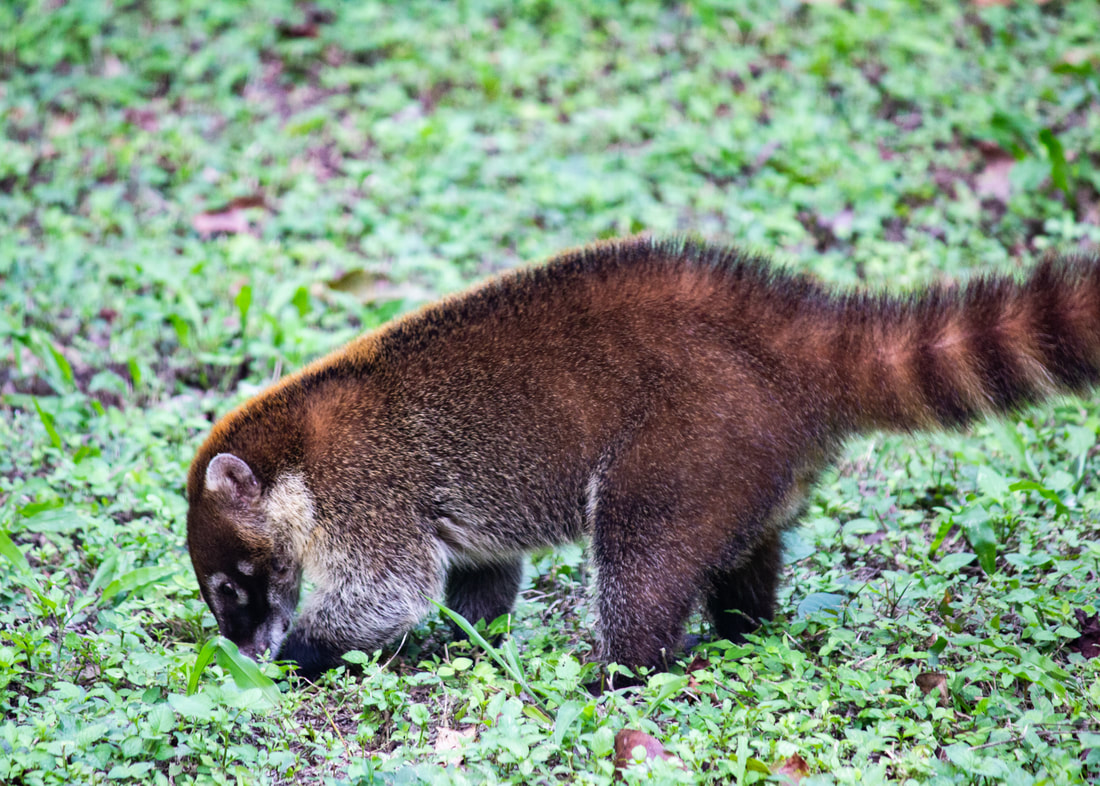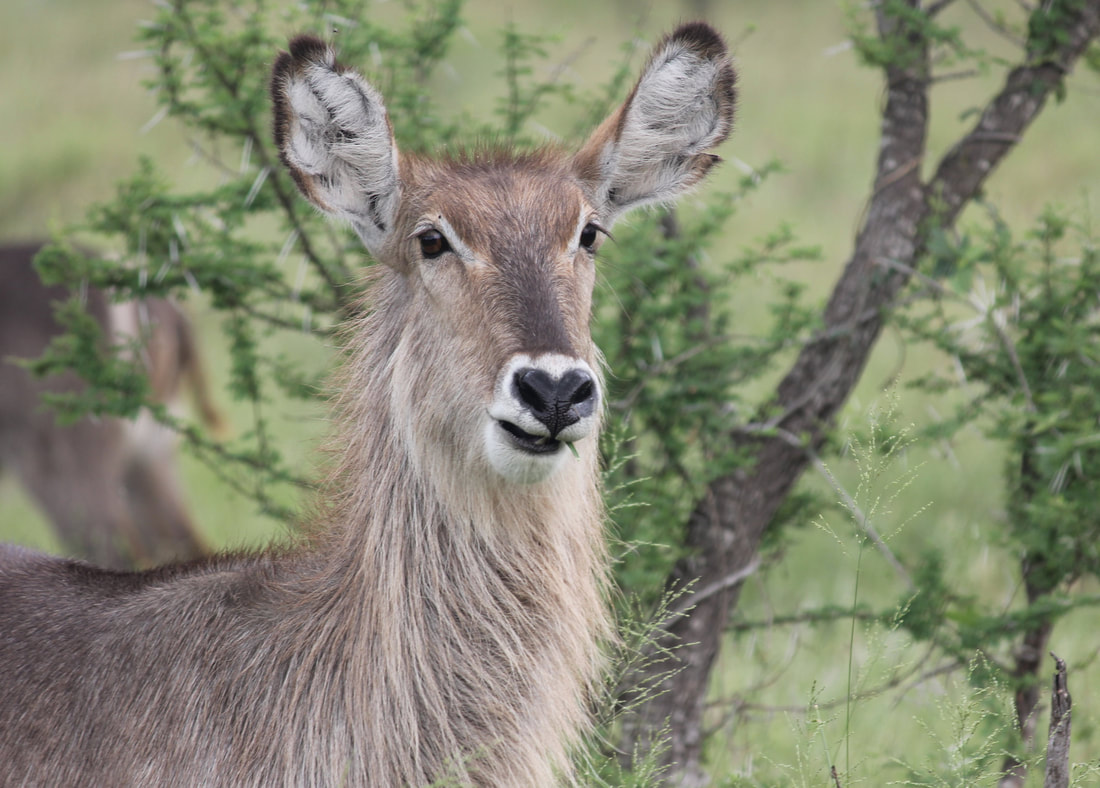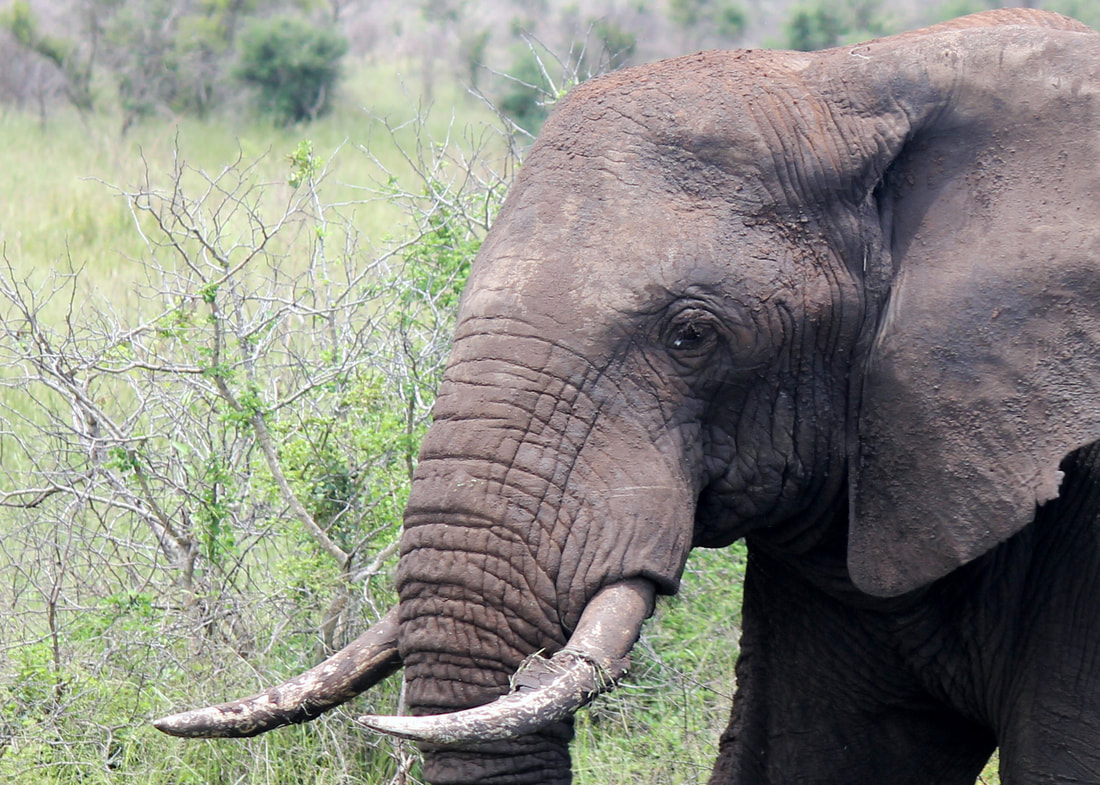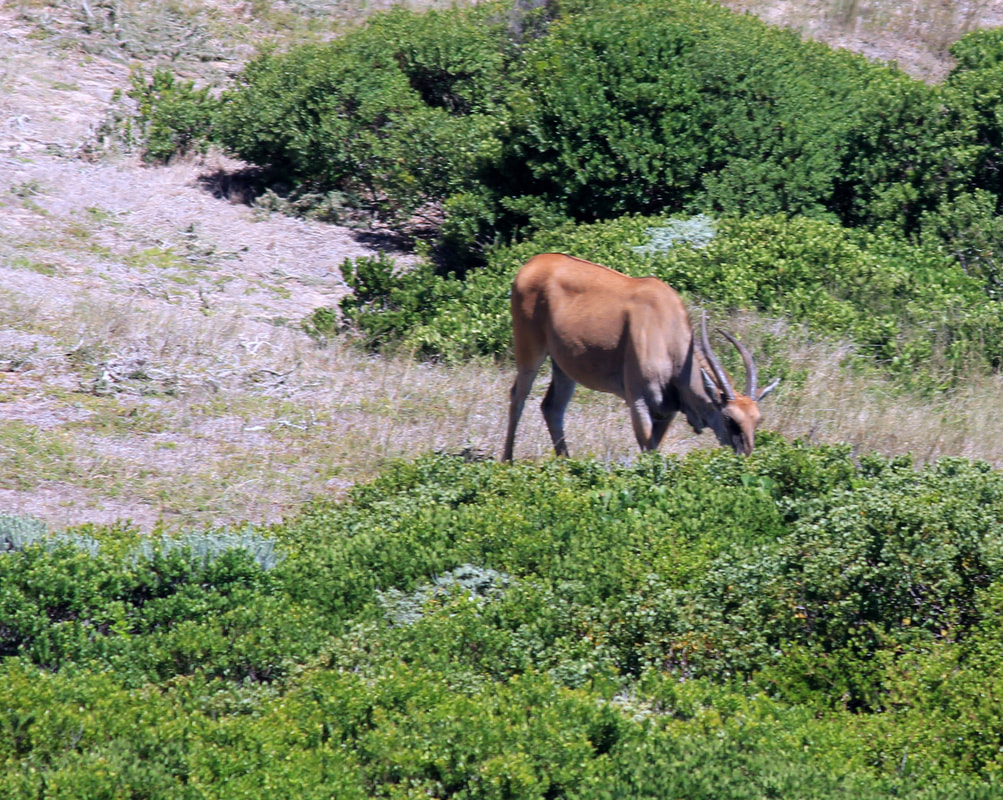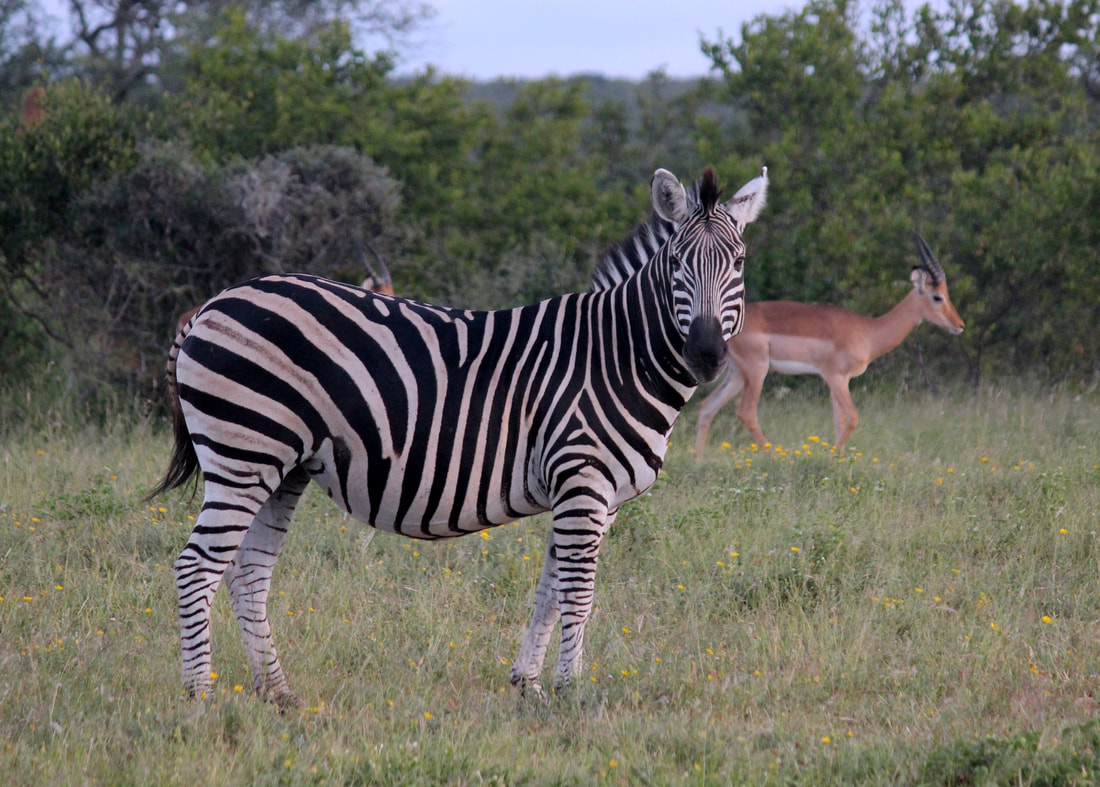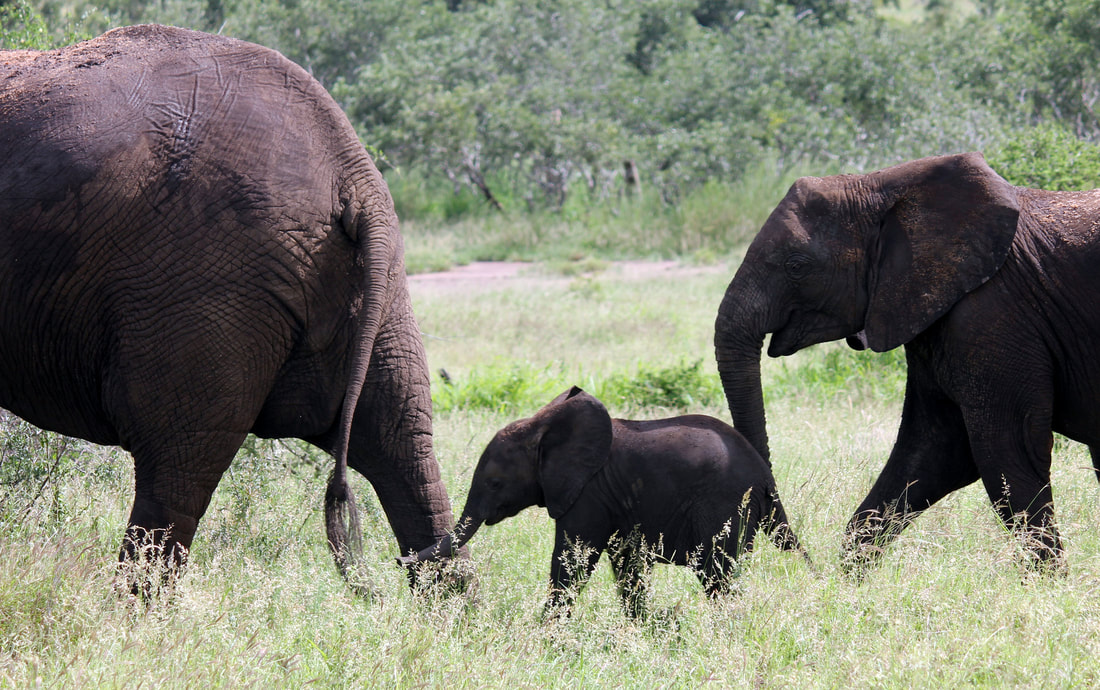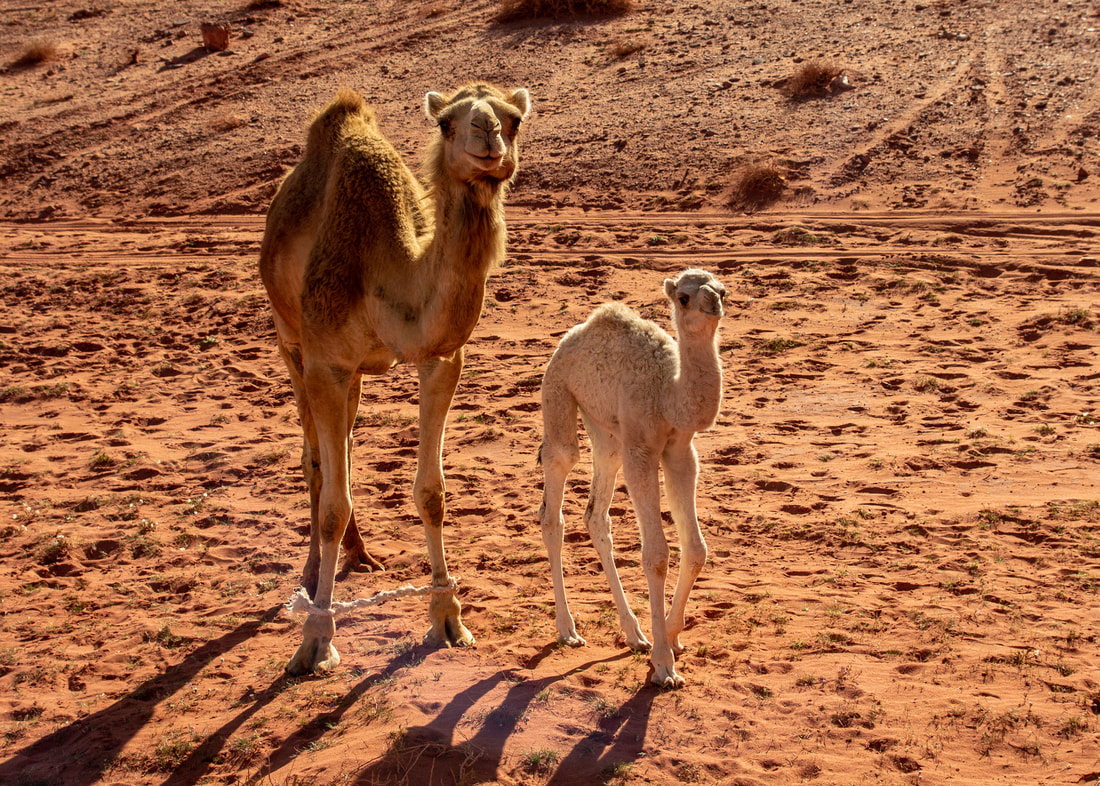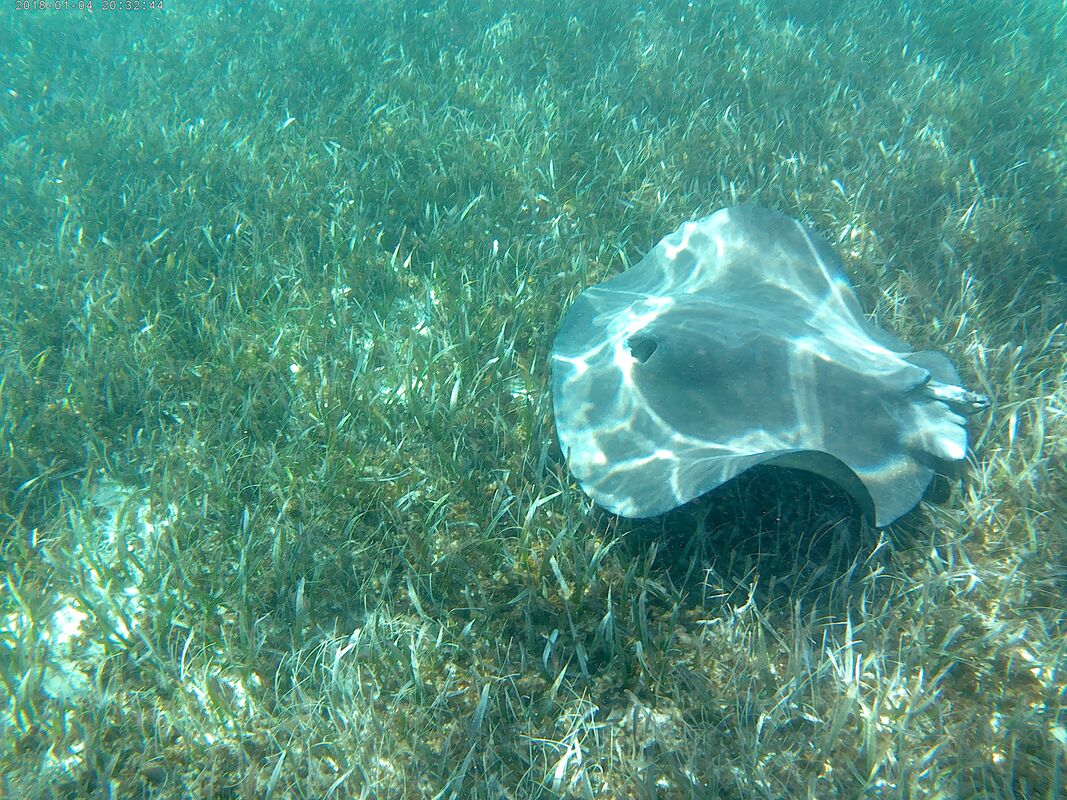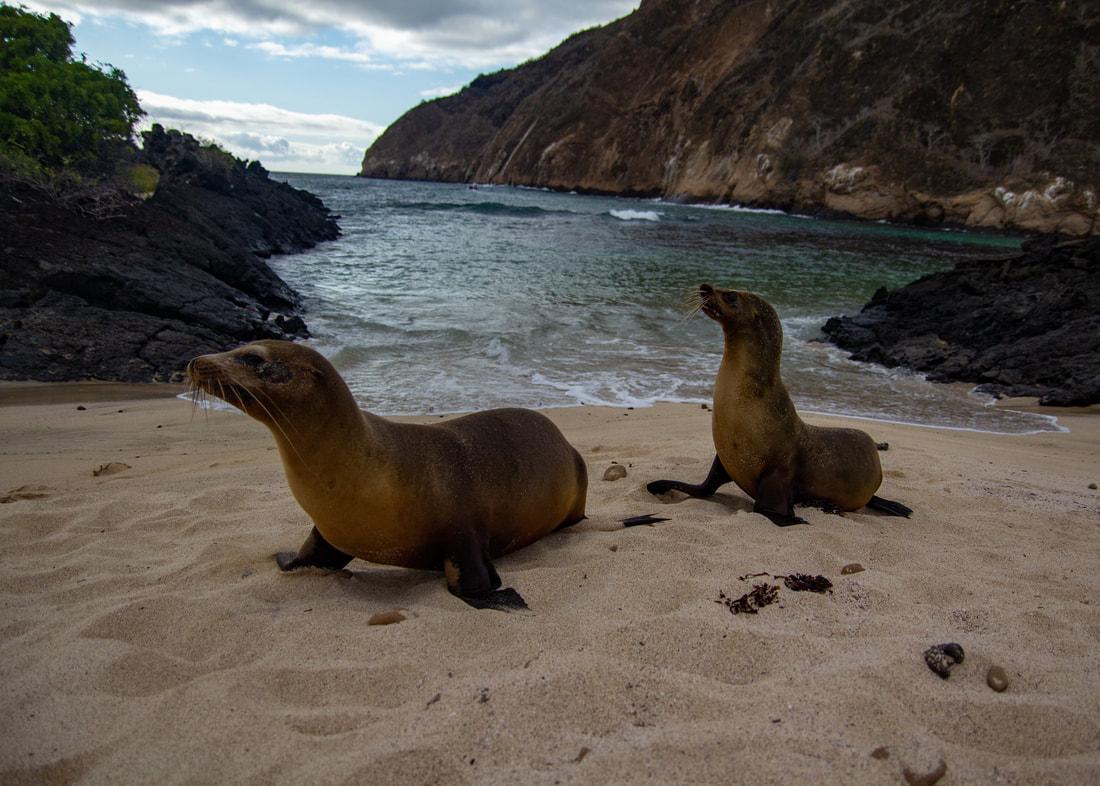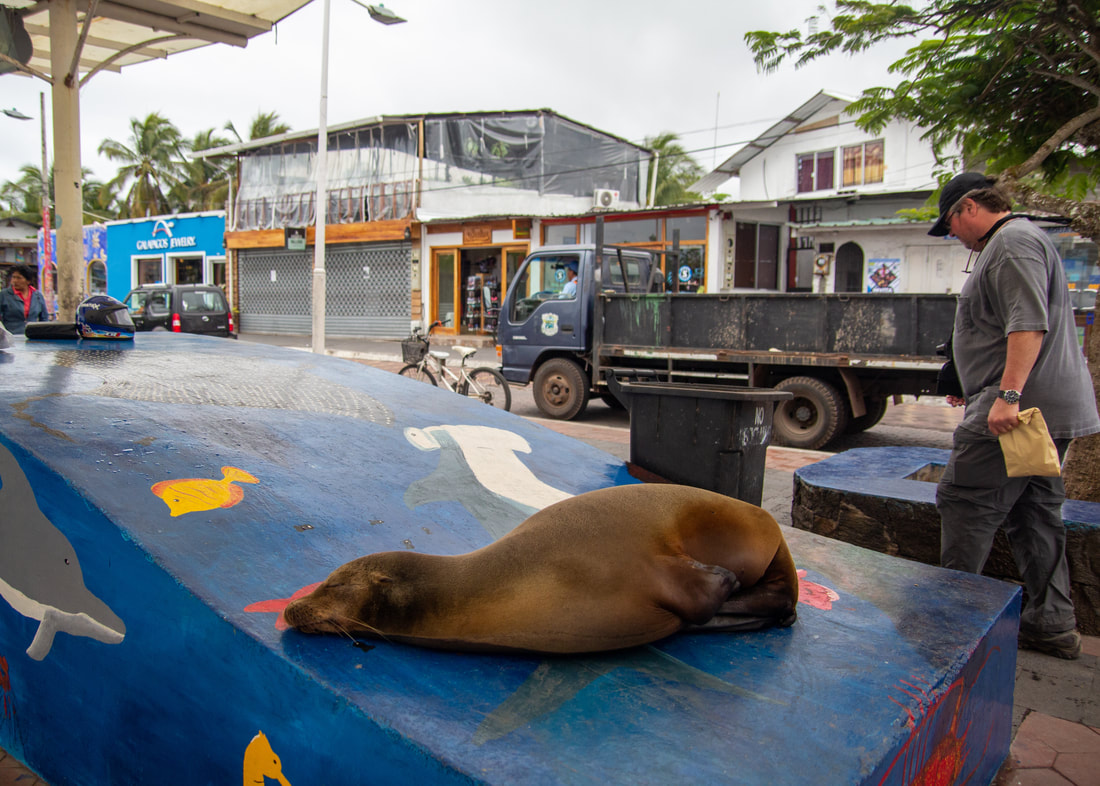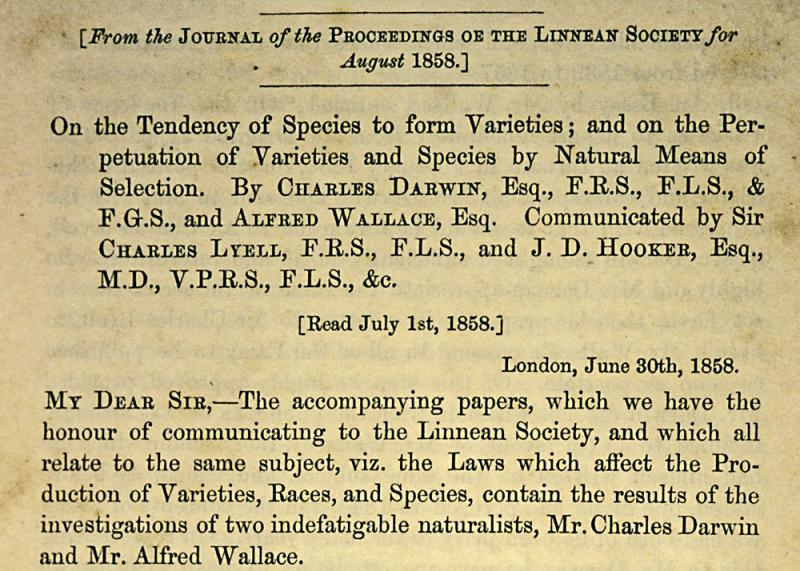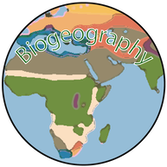Welcome to Mr. Tredinnick's Ecological Biogeography Course
|
As a continuation of the topics of speciation and biodiversity from semester 1 of the biogeography, semester 2 examines the patterns of adaptations and variations that occur across different ecosystems and at different latitudes. The emphasis of the course will be on the animal and plant adaptations and specializations that species have made to survive in different environments. Students will incorporate topics from biology, botany, and zoology under a geographic framework to better understand the connections that plants and animals have with the environment they live in. Using project-based methods of observation, data collection, and geospatial modeling, students will incorporate in scientific studies to better understand spatial distributions of the planets plants and animals.
|
Ecological Biogeography Syllabus (Updated Spring 2022)
Unit I - Conceptual Ecological Biogeography
Unit I Schedule
|
Week 1: Our Piece of the Planet
(Jan 3-7th) No School Jan 3-4th - Staff Development Module 1.1: Reason for the Seasons
Guiding Inquiry: How does a place's location on the planet affect the climate conditions it will experience throughout the year? Forum: Identifying Location (1.1) Map Lab: Seasonal Insolation (Assignment) + NASA Earth Observations - Solar Insolation (Notes) HW: Check for Understanding Next Class Week 4: Connecting to the Land
(Jan 24-28th) Module 1.6: Spatial Connections
Guiding Inquiry: To what degree to animals have Spatial Connections to the landscapes in which they live? Forum: Reflections of Landscape (1.6) - Rules of Ecobiogeography (Notes) Map Lab: Testing Bergmann and Allen (Assignment) + IUCN Redlist + ArcGIS + Submission Form Module 1.7: Adapted for its Surroundings
Guiding Inquiry: How can Spatial Connections between geographically separated areas be generalized based on the patterns and trends of species distributions? Forum: Recapping Bergmann and Allen (1.7) Field Lab: Mammals, and Birds oh My! (Dome) Map Lab: To Each their Own (Assignment) + HHMI: BiomeViewer + Submission Form Discussion: To Each Their Own |
Week 2: Biomes as Regions
(Jan 10-14th) Module 1.2: Biomes and Ecoregions
Guiding Inquiry: How can the geographic theme of "regions" be used to better understand the categorization of ecological areas? Forum: It is what you think it is? (1.2) Map Lab: Geographic Zones (Assignment) + World Atlas: Geographical Zones + Submission Form HW: Geographic Zones Reflection (On submission form) Module 1.3: Classifying Climate
Guiding Inquiry: What is the significance of temperature, precipitation, and altitude in helping to determine the climate characteristics of a region? Forum: Explaining Nebraska (1.3) - Koppen Climate Classification System (Notes) - Deconstructing Climographs (Assignment) + Submission Form + Carlton: Normal Climate Patterns HW: Complete Reflection Questions HW: Check for Understanding Next Class |
Week 3: Reading Place
(Jan 17-21st) No School Monday Jan 17th - MLK Day Module 1.4: Capturing Place
Guiding Inquiry: What can you learn about a Place from "reading the landscape" to analyze it's human and physical characteristics? Forum: Identifying Nebraska's Place (1.4) Field Lab: Placing a Biome (Student Choice) Discussion: Understanding Place Characteristics Module 1.5: Mapping Place
Central Question: How can geospatial technologies be used to identify and map Place characteristics to help spatialize the landscape? Forum: Mapping Relationships (1.5) - Where in the World? (Notes) Map Lab: Scaling Place (Assignment) + Submission Form Week 5: Bringing it Together
(Jan 31st-Feb 4th) Module 1.8:The Human Factor
Guiding Inquiry: How have humans impacted the environment and been affected by it? Forum: A Spatial Impact (1.8) Map Lab: The Human Reach (Notes) HW: Unit I Test next class - Unit I Study Guide Module 1.9:End of Unit I
Guiding Inquiry: What is the relationship between biological species and their physical location? Forum: Q/C/C/C/CoR (1.9) - Unit I Celebration of Knowledge - Conceptual Ecological Biogeography |
Unit I NotesKoppen Climate Classification System (Module 1.3)
Rules of Ecogeography (Module 1.6)Solar Insolation (Module 1.1)The Human Reach (Module 1.8)
Unit I Review |
Unit I Assignments
| ||||||||||||||||||||||||||||||||||||||||||||||||||||||
Unit I Resources
Unit II - A Biogeographic Perspective of the World's Physical Regions
Unit II Schedule
|
Week 6: Exploring Physical Regions
(Feb 7-11th) Module 2.1: Biome Refresher
Guiding Inquiry: What is a biome and what distinguishes one from another? Forum: Living the Easy Life (2.1) - Introduce Unit Portfolio (Assessment) - Earth's Ecosystems and Biomes (Notes) + Biomes - The Living Landscape (Video) Module 2.2: Scientific Basis of Biomes
Guiding Inquiry: How can scientific data be used to track, measure, and classify biomes? Forum: Measuring Biomes (2.2) - Holdridge Life Zones Chart (Notes) Map Lab: Investigating Biodiversity (Assignment) + Investigating Biodiversity Webmap + TED-Ed: Why is Biodiversity so Important? Week 9: The Arctic and Subarctic
(Feb 28-Mar 4th) No School Friday Mar 3 - Science Fair Module 2.6: An unforgiving Landscape
Guiding Inquiry: What is unique about the Tundra as a region, where is it located, and what issues is it facing due to the warming climate? Forum: Bring the Arctic Home (2.6) - Issues from the Polar Regions (Notes) + VICE: Stopping the Arctic Ice from Melting Portfolio Piece: Polar & Sub-Arctic Regions Module 2.7: The Frozen Lungs of the Planet
Guiding Inquiry: How do the large boreal forests on the Arctic and Sub-arctic compare to the forests found elsewhere around the world? Forum: A Blessing or a Curse? (2.7) - Reading....for Science! (Assignment) + Boreal Forest Health and Global Change Discussion: Reading....for Science! Portfolio Piece: Polar & Sub-Arctic Regions Week 12: Temperate Forests
(Mar 28-Apr 1st) Module 2.12: Forest Ecoregions
Guiding Inquiry: Forum: The Bete Noir of Forests (2.12) - Earth's Temperate Forests (Notes) - Save the Forests! (Assignment) Portfolio Piece: Temperate Coniferous, Temperate Evergreen, & Temperate Deciduous Forests Module 2.13: Mid-Latitude Forests
Guiding Inquiry: Why do species in Mid-Latitude forests need to be so adaptable? Forum: Nature Around You (2.13) Field Lab: Out and About (Student Choice) - Planet Earth: Forests Portfolio Piece: Temperate Coniferous, Temperate Evergreen, & Temperate Deciduous Forests |
Week 7: Arid and Semi-Arid Regions
(Feb 14-18th) No School Feb 17-18th - Conferences Module 2.3: Spatial Distribution of Arid Regions
Guiding Inquiry: Where are the planet's arid and semi-arid regions located, and how does their physical location impact the ecosystem? Forum: As Nurturing as a Desert (2.3) - Arid and Semi-Arid Regions (Notes) Field Lab: The Wadi Rum (VR) Portfolio Piece: Arid & Semi-Arid Regions + Adding Elements to Portfolio Module 2.4: Harshest Environment
Guiding Inquiry: How have species evolved to better survive in the harsh conditions of a desert? Forum: Adapt, Or Else?? (2.4) Field Lab: Surviving in a dry Land (Desert Dome) + Submission Form Portfolio Piece: Arid & Semi-Arid Regions Week 10: Alpine Regions
(Mar 7-11th) Module 2.8: Mile High Living
Guiding Inquiry: Why might life in high altitudes be so difficult for plants and animals? Forum 2.8: Desirable or Not - Alpine Ecoregion (Notes) + Google Expeditions VR Portfolio Piece: Alpine Module 2.9: Portfolio Work Day
Guiding Inquiry: How do the biomes differ in their ability to support populations of diverse species? Forum: Biggest Issues as of Yet? (2.9) - Work Time: Complete sections 1,3 & 6 of Portfolio HW: Portfolio Check + Elements added - Polar & Sub-Arctic Regions, Arid & Semi-Arid Regions, Alpine Week 13: Tropical Regions
(Apr 4-8th) No School Friday April 5th - Testing Day Module 2.14: Distribution of Tropical Forests
Guiding Inquiry:What are the different types of tropical forest and how are they shaped by different physical forces? Forum: The Jungle Book (2.14) - Tropical Forests (Notes) + YouTube: Tropical Forests Field Lab: Everyone has a Niche (Jungle) Portfolio Piece: Tropical Forests & Tropical Seasonal Forests Module 2.15: Issues of Tropical Forests
Guiding Inquiry: Why is it increasingly vital to protect the planet's tropical forests? Forum: Building Prior Knowledge (2.15) - Forest Degradation Story Telling (Assignment) + Basemap + Example: State of America's Forests + NatGeo: Deforestation Facts and Figures Portfolio Piece: Tropical Forests & Tropical Seasonal Forests |
Week 8: The Cryosphere
(Feb 21-25th) No School Monday Feb 21st - President's Day Module 2.5: Life in the Coldest Regions
Guiding Inquiry: What special adaptations have species in the polar regions made to survive in their harsh environments? Forum: Ups and Downs of Tourism (2.5) Field Lab: Similar but Separate (Aquarium) Field Lab: Polar Obsession (VR) Field Lab: Helicopter Ride over the Arctic (VR) Field Lab: Journey to the Arctic (VR) Portfolio Piece: Polar & Sub-Arctic Regions Week 11: Our Blue Planet
(Mar 21-25th) Module 2.10: Changes to our Coastal Seas
Guiding Inquiry: What can cause ocean ecosystems to change both positively and negatively over time? Forum: Changing Ecosystems (2.10) Field Lab: Coastal Issues (Aquarium) - Pristine Oceans (Assignment) + TED Talk: Enric Sala - Glimpse of a Pristine Ocean + Nceas: Human Impact on Marine Ecosystems Portfolio Piece: Marine & Freshwater Module 2.11: Earth's Freshwater Resources
Guiding Inquiry: How are the freshwater ecosystems different than the marine systems and where are they located? Forum: The Home Waters (2.11) - The Hydrosphere (Notes) Portfolio Piece: Marine & Freshwater Week 14: The Prairies and Steppes
(Apr 12-16th) No School Friday Apr 15th - Teacher Work Day Module 2.16: Life on the Grasslands
Guiding Inquiry: What are the distinctive subdivisions of grasslands and what are the different issues associated with the biome? Forum: Dangers of life in the Open (2.16) Field Lab: Toadstool Geological Park (VR) - The Grassland Biome (Notes) + Flora and Fauna of Glacier Creek HW: Study Shows Importance of Biodiversity to Grasslands HW: Prairie Biodiversity (Control) Portfolio Piece: Temperate Grasslands Module 2.17: Open Range
Guiding Inquiry: Is the analogy of the grasslands as a desert accurate? Forum: Like a Desert? (2.17) - Prairies of North America (Assignment) + Encyclopedia of the Great Plains: Physical Environment Portfolio Piece: Temperate Grasslands Prairie Protector |
|
Week 15:
(Apr 18-22nd) No School Friday Apr 18th - Teacher Work Day Module 2.18: Clear the Savanna
Guiding Inquiry: Forum: (2.18) Field Lab: Game Trails (African Grasslands) Portfolio Piece: Tropical Savanna Module 2.19: Portfolio Work Day
Guiding Inquiry: How do the biomes differ in their ability to support populations of diverse species? Forum: Progress Check (2.19) |
Week 16: Portfolio Completion
(Apr 25-29th) Module 2.20: Portfolio Work Day
Guiding Inquiry: How do the biomes differ in their ability to support populations of diverse species? Forum: (2.20) - Portfolio Submission Module 2.21: Portfolio Presentation & Review
Guiding Inquiry: How do the biomes differ in their ability to support populations of diverse species? Forum: (2.21) |
Week 17: Unit Assessment
(May 2-6th) Senior Ceremony - Thursday May 5th Module 2.22: Unit II Celebration of Knowledge
Guiding Inquiry: How do the biomes differ in their ability to support populations of diverse species? Forum: (2.22) - Unit II Test - The World's Physical Regions |
Unit II Notes
Unit II AssessmentExemplar: World Biomes by Lauren S.
|
Unit II Assignments
Unit II Review
| ||||||||||||||||||||||||||||||||||||||||||||||||||||||||||||||||||||||||||||||||||||||||||||||||
Earth's Temperate Forests (Module 2.14)
Issues from the Polar Regions (Module 2.9)
The Grassland Biome (Module 2.16)
The Mountain Ecoregion (Module 2.11)
Tropical Forests (Module 2.5)
| A Conceptual Model for the Study of Biomes | |
| File Size: | 512 kb |
| File Type: | |
Unit II Resources
Unit III - Human Ecology Geoinquiry
Unit III Schedule
|
Week 18: Ecobiogeographic Geoinquiry
(May 9-13rd) Module 3.1: Develop Research Question
Guiding Inquiry:What is an ecological issue you would like to learn more about? Forum 3.1: Question Development - Eco-Biogeography Geoinquiry (Assignment) + Ask Benchmark: Functional Research Question Module 3.2: Project Research
Guiding Inquiry: How can ecological issues be addressed through research? Forum 3.2: Research Focus - Eco-Biogeography Geoinquiry (Assignment) + Acquire Benchmark: Resources identified and research begun |
Week 19: Ecobiogeographic Geoinquiry
(May 16-20th) Module 3.4: Project Research
Guiding Inquiry: Why is solid research design important to the completion of ecological work? Forum 3.4: - Eco-Biogeography Geoinquiry (Assignment) + Acquire Benchmark: All research completed Module 3.5: Project Compilation
Guiding Inquiry: What types of visuals are needed to help further explain a topic? Forum 3.5: Pitch Your Maps - Eco-Biogeography Geoinquiry (Assignment) + Visualize and Organize Benchmark: Information and pictures formatted |
Week 19: Ecobiogeographic Geoinquiry
(May 23-25th) Last Day of School - Wednesday May 25th |
Unit III Notes |
Unit III Assignments
| ||||||
Unit III Resources
Ecological Biogeography Course Resources
Class Resources
|
Ecological Biogeography Forum | ||||||||||||||
